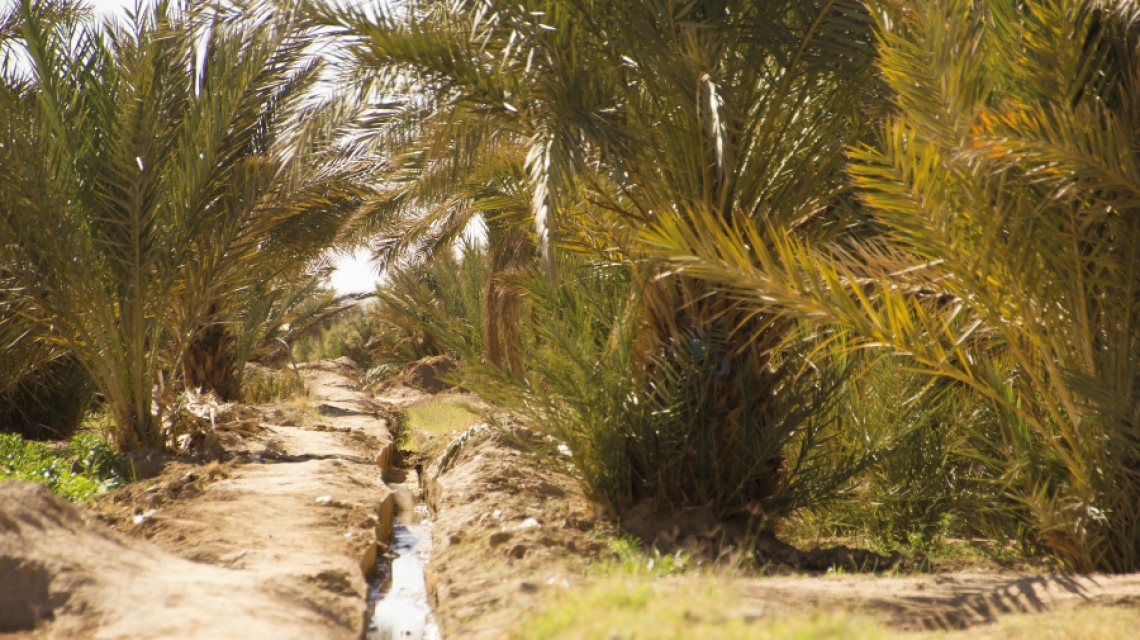
Fresh water is scarce in the UAE. We can’t rely on rainfall to water our crops, so instead we turn to irrigation.
That creates its own problems, though. The fresh water used for irrigation has to come from somewhere – either from the Arabian Gulf via a desalination plant, or from treatment plants that recycle water that has already been desalinated and used for other purposes. In either case, it is expensive and in limited supply, so there is pressure to keep the amount used to a minimum.
A number of irrigation systems have been studied, including sprinkler systems and drip irrigation, but they each have drawbacks.
Researchers at the Masdar Institute are investigating an innovative technique for irrigation: the use of super-absorbent polymers to retain water in the soil. The research is being carried out in collaboration with the International Centre for Biosaline Agriculture (ICBA) in Dubai.
Super-absorbent polymers, which can hold and store several times their weight in water, are already being used in a number of fields.
Surgeons use them as super-efficient swabs. Firefighters use polymers pre-loaded with water to create a huge mass of steam that puts out a fire more effectively than water alone.
Our focus is on using them in agriculture to ensure a constant supply of water to the plant while minimising water loss by evaporation and infiltration, which is when irrigation water misses the root system altogether and is drained away by gravity.
To use the polymer, a worker adds water to it, turning it into a gel. It is then placed in the soil near the root of the plant.
With the polymer holding water at its base, the amount of watering a plant needs can be cut by more than half. When it is irrigated, the polymer ensures most of that water goes to the plant and not deep into the soil. And unlike standard irrigation, where the water supply tends to be sporadic, constant access to water removes the risk of water stress.
Initial studies abroad have indicated that the hydrogels and polymers do not get absorbed by the plants; they are used only as water-retention materials.
This point is important and needs to be verified to ensure the polymers do not end up in the plant and pose a risk to human health.
Research has begun at the Masdar Institute to see how such super-absorbent material can be used in the UAE.
First, we select a material based on its water retention, its useful life and its composition – whether it is petroleum-based or organic.
Then, we test a number of crop samples with different amounts of the gel, and varyingly saline water, to see how well it works. We focus on how much water is needed with each gel to produce plants of a particular size, looking at the crop yield, leaf size and root size. We compare this with a controlled irrigation-system plant grown with similarly saline water, to quantify the savings in each case.
Cost is important, too. So as well as the cost of the gel itself, we will look at the differences in the cost of water, labour, electricity, and so on.
We also intend to evaluate the reduction of stress on the plants due to the constant availability of water, and the risk of the gel being absorbed by the plant and any potential health consequences.
The UAE has the opportunity to take a leading role in this field, adapting the technology to desert environments. Through this we hope to increase agricultural production while using less water – helping the UAE secure its own food supply while minimising its effect on the environment.
Abdalla Al Serkal is a master’s student in water and environmental engineering at the Masdar Institute of Science and Technology, where Dr. Taha Ouarda is professor of water and environmental engineering.